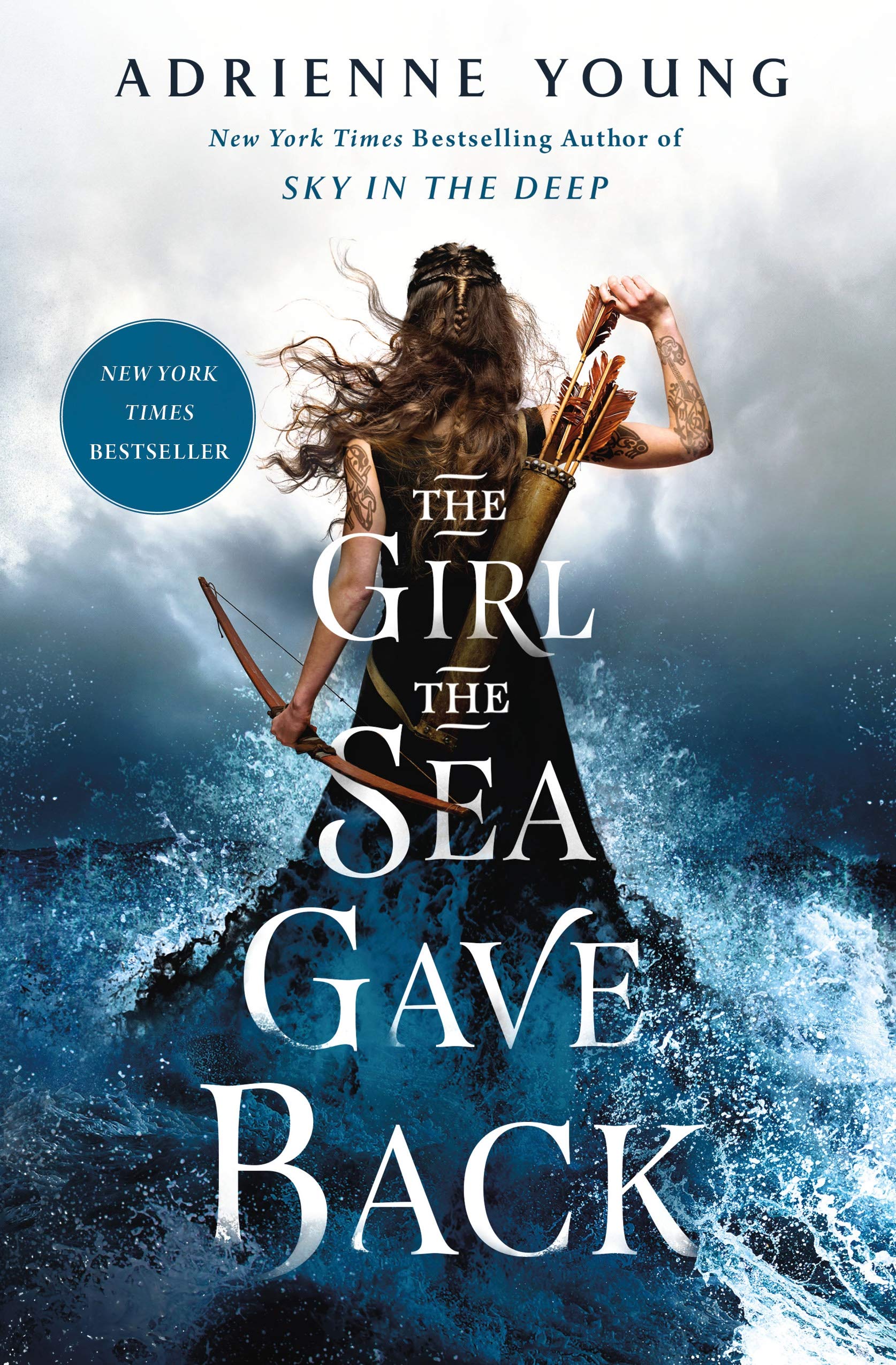
I was tagged by Krista over at The Bookish HedgeMom last week. It took me a little while before I had time to sit down and do this tag, but I finally was able to. (Yay me!) Anyway, let's get into this tag.
Chocolate Cake: A Dark Book That You Loved

The Power by Naomi Alderman
This is a very dark story, but I loved how well the author committed to the concept. I also enjoy books where the premise isn't inherently bad (in this case, women all developing the same power) but humanity turns this neutral aspect into something bad. Or maybe i'm just a sucker for a "humans are the real monster" theme. This was one of my favorite books that I read last year and I would recommend it to anyone interested in speculative sci-fi.
Vanilla Cake: A Favorite Light Read

Holes by Louis Sachar
Holes is just a great book. It makes me nostalgic, it's a quick read. I don't know if everyone would say it counts as "light" but I categorize it that way. I often need to be in a certain mood for certain books, but no matter what "mood" I'm in, Holes is a good option. It was one of my favorite books as a kid.
Red Velvet: A Book That Gives You Mixed Emotions

The Giver by Lois Lowry
It's not The Giver that gives me mixed feelings, but the later books in The Giver quartet. The Giver was amazing. Gathering Blue was amazing, Messenger was fine and Son I did not like. So, I'm torn between my love for The Giver and annoyance at how the rest of the series went. In hindsight, it would've been better if there wasn't a series at all.
Cheesecake: A Book That You Recommend to Everyone

Where the Crawdads Sing by Delia Owens
I loved this book. I heard it was good and I was surprised to find that I agreed with the majority here. Given that I tend to read either fantasy or science fiction books, this is my current go-to for people who tend to avoid those two genres. I liked the story, I liked the writing and I highly recommend.
Coffee Cake: A Book That You Started But Never Finished

The Savior's Champion by Jenna Moreci
I went into The Savior's Champion expecting to like it. I'd heard great reviews about it. Other readers and bloggers who I follow gave it a lot of praise. I really thought I'd like this book, but I just couldn't get into it. I had trouble immersing myself in the story. So, when I reached a point about 1/3 of the way through the book, and I found that I wasn't enjoying it, I decided to DNF it. I might revisit it later, but for now, I've stopped reading it.
Carrot Cake: A Book With Great Writing

Wicked: The Life and Times of the Wicked Witch of the West by Gregory Maguire
The book that launched a Broadway sensation. While Wicked (the musical) was inspired by this book, I feel like I should make it clear that the stories differ a lot. The book has more adult content and leans more into themes of what separates good from evil. All of that being said, the book is exceptionally well-written. Maguire is able to both recapture the wonder of Oz while also making it his own. The use of imagery and symbolism in this book deserves to be praised.
Tiramisu: A Book That Left You Wanting More

A Dream Within A Dream by Kristina Mahr
This book left me wanting more in a bad way. The conclusion felt very rushed and I just wanted more from the story. Too much attention was given to the romance aspect and not enough to real conflict or characters that the writer had spent two novels building towards. It missed out on a lot of interesting plot-points in my opinion.
Cupcakes: A Series With 4 or More Books

A Series of Unfortunate Events by Lemony Snicket
This series was the one of the first, if not the first, series that I read to completion. Like with Holes, some of my love for it comes from nostalgia, but these books are also unique and whimsical in an unexpected way. I love this series. I love the writing, I love the literary tricks Snicket employs within each book. I'm also a fan of the Netflix series that these books were adapted into.
Fruit Cake: A Book That Wasn't What You Anticipated

The Girl the Sea Gave Back by Adrienne Young
This book makes the list because I didn't expect it to be anywhere near as good as it is. I expected it to be a run-of-the-mill YA fantasy story. I had every reason to expect it to be completely average. The writing was better than I expected, as was the plot. There were interesting and unique aspects to the story that I wasn't expecting. This book took me by surprise, so it's the first thing that comes to mind for this category.
I tag:
- Anyone who finds this tag interesting and wants to participate. I can't think of specific people to tag at the moment


